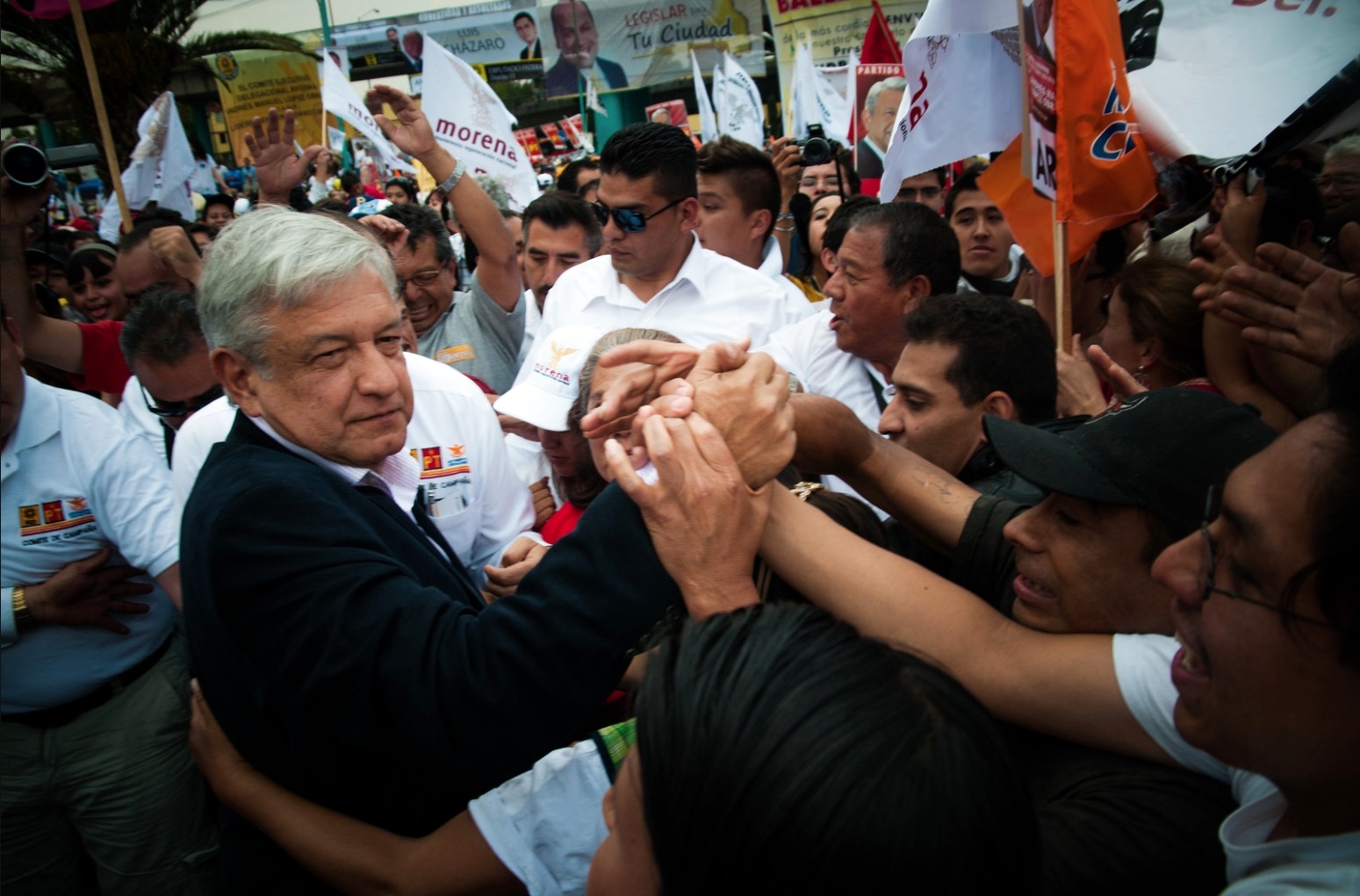“It may seem pretentious or exaggerated, but today not only begins a new government, today begins a change of political regime”. This phrase of Mexican President Andrés Manuel López Obrador (AMLO), halfway between a promise and a proclamation, bears the trademark of a style of doing, thinking and feeling politics. Delivered in the inaugural speech of the six-year term before a crowd in the capital’s Zócalo, it paints in full body the politician who began his career in the seventies, was part of the dissident current of the PRI that gave birth to the PRD in the late eighties and in 2018 reached the presidency of the country.
With white hair, slow speech and caustic humor, he is known for his sharp prose and strong will. A veteran of political struggles, he was head of the Mexico City government and candidate in the (controversial) federal elections of 2006 and 2012. But, above all, he will be remembered for having won the last presidential elections with the highest vote in Mexico’s history.
El Pejelagarto or El Peje, as he is also called, is for some a great politician and for others an irresponsible phony. But who is AMLO, why is he loved and hated at the same time?
CONSERVATIVE
Reaching the presidency of Mexico was the perfect culmination of a journey that a twenty-something López Obrador began when he joined the PRI. He began his career in the political arena as coordinator of Tabasco’s indigenist organization, while he was a professor of sociology at the state university. And despite a busy schedule of travel, family and studies, he never stopped being an active militant.
His final thesis for his political science degree presented at UNAM reveals his fascination with national history. From that moment on, he proclaimed in all forums his devotion to figures such as Benito Juárez and Lázaro Cárdenas. It is not strange, therefore, that as president he would take up historical elements to proclaim himself as a continuity of the past. The Fourth Transformation would be on a par with other events in Mexican history such as the Independence and Reform Wars of the 19th century or the Revolution that began in 1910.
Its ideas and convictions evoke a conservative tone. For his supporters, this retrospective view characterizes a leader with a permanent commitment to social justice, the strengthening of the State or the traditional principles of Mexican foreign policy. To his critics, on the other hand, it reflects an archaic perspective that minimizes and skirts acknowledging (and fully committing to) women’s rights, the LGBT+ community or environmental issues.
Disagreements are inevitable. A democratic society is defined by a plurality of judgments and assessments. It is illogical to pretend that everything can be summed up in a single perspective.
PERSONALIST
As a political boss, AMLO’s style is personalism, where politics – according to the Oxford Dictionary – “is practiced according to the convenience, convictions, arbitrariness or style of the ruler or leader.” The definition harkens back to that repeated image of AMLO speaking every morning at 7 a.m. to the citizenry from the seat of government.
The morning conferences have propelled forward the development of democratic culture in Mexico and are also the stage for recreating the president’s personal ego. Many critics insist that the options are mutually exclusive, but “las mañaneras” means both possibilities at the same time.
Personalismo is also, according to the Real Academia Española, the “adherence to a person or to the ideas or tendencies he or she represents, especially in politics.” The description fits AMLO, a leader who manages to make everything that happens around him subordinate to him, including institutions and parties, individuals and collectives. And when public power crystallizes in an individual, what is really essential for others becomes the ruler who, as a consequence, becomes the most loved (or the most hated) man in the country.
However, the president’s personalism is not enough to explain the current dispute between AMLO’s defenders and critics. In the end, he is not the only one guilty of rendering the search for political agreements sterile. The zero-sum game is being played by the president as well as by his detractors. Polarization -a fashionable term- is an artificial creation, basically a discourse used as a means to obtain or conserve power, depending on whether it is convenient for Tyrians or Trojans.
POPULAR
AMLO began his six-year term in the midst of a superlative expectation and after 28 months his popularity remains stable. He has 61% support and on average has never been below 50%, with a higher support than Enrique Peña Nieto and similar to that of Felipe Calderón in the same period.
However, in view of the growing social polarization, what can happen in the June 6 elections? The President is betting on the charismatic bond with his followers to face the anti-AMLO coalition (PRI, PAN and PRD). This is practically his only political capital, as his administration has been relatively disappointing considering the changes that were expected and he lacks the backing of a strong political movement since MORENA is little more than an electoral label.
Regardless of whether AMLO manages to keep the good star or not, one thing is certain: no one will be able to take away from him the merit of having invented a political character that has managed to define by himself an era, the Mexican democratic transition, the same one that still struggles between tragedy and farce. It is no small feat. We will see if it is enough for him.
Translation from Spanish by Destiny Harrison-Griffin
Photo by Eneas at Foter.com











